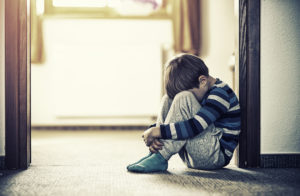It is often said, “We are our own worst critic.” This statement is true for adults and kids alike, but sometimes children with anxiety and other mental health disorders can fall into the rabbit hole of negativity. This negative thinking can snowball and contribute to your child’s anxiety, depression, or even amplify their already overwhelming emotions.

Even though these negative thinking patterns are often unrealistic, they can have a large impact on how children express themselves, their mental well-being, and their view of the world around them. Mental health experts refer to this way of thinking as “cognitive distortions,” but it is also known as thinking errors or thinking mistakes.
Everyone is capable of having a bad day which makes them feel negatively toward the world or those around them. As Jeff DeRoche, a clinical worker at Child Mind Institute says, ““Some amount of cognitive distortion is normal. We all make thinking mistakes. It’s when that kind of thinking is chronic and entrenched that the thoughts are likely doing a number on a child’s emotional life. I’ve never seen someone suffering under the weight of any kind of behavioral health problem who isn’t making cognitive errors quite regularly.”
The Child Mind Institute has identified the 11 most common cognitive distortions children make in everyday life. For more information on these, along with tips on how to combat them, please visit the Child Mind Institute.